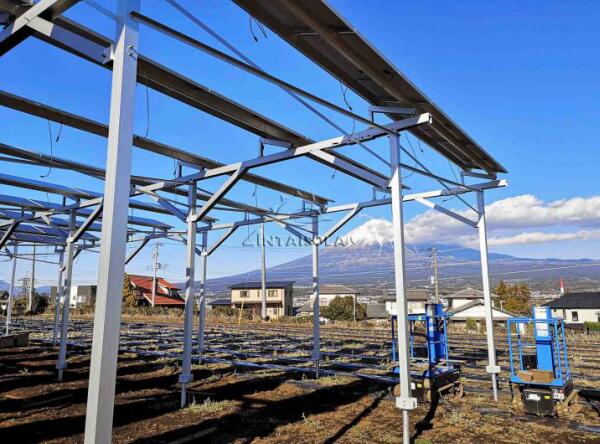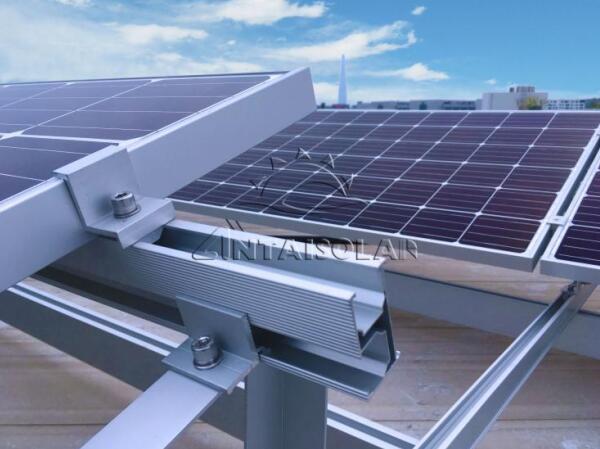The key points of choosing a right material for solar racking
Many users pay great attention to the high power generation of solar power plants, so when purchasing photovoltaic products, they often only take the quality and output power of solar modules into consideration. In fact, the average service life of photovoltaic power plants is at least 25 years, which is determined by the attenuation power of the modules (module power attenuation within 25 years is not more than 20% of peak power). In order to ensure the 25-year service life of the solar power generation system, besides the solar modules, the quality of other components cannot be ignored. Today, let’s talk about the importance of choosing a right material for solar racking.

At present, the common types of solar racking on the market are: stainless steel solar racking, galvanized steel solar racking, aluminum alloy solar racking.

Stainless steel solar racking
Stainless steel is actually a kind of steel with a lot of impurities and easily reacts with other substances. Moreover, stainless steel solar racking cannot be produced in a standardized way, and must be welded on site. If the welding are not handled properly, rust will occur, which will affect the overall corrosion resistance and stability of the solar racking.
Galvanized steel solar racking
This kind of solar racking is usually treated by hot-dip galvanizing (the thickness of galvanized film is not less than 55μm) or plastic spraying. Its anti-corrosion ability is relatively weak with only average 20 years of anti-corrosion life. It also needs special maintenance in daily use.
Aluminum alloy solar racking
Aluminum alloy has the characteristics of easy forming and easy processing, and can be used for standardized production, enabling easy installation. There is no need for on-site cutting and welding to avoid hidden dangers such as weld bubbles and weld rust. The surface of the aluminum alloy material is anodized, and the thickness of the anodization film thickness is generally not less than 10 μm, which has good corrosion resistance.

Antaisolar adopts anodized aluminum 6005 T6, strictly detecting the solar racking anodization film to observe whether the thickness meets the international standards or exists damage, ensuring the average anodization film thickness of solar racking reach 12μm, higher than that of similar products on the market. Not only providing easy to install mounting solution, but also strictly engineered to compliance with international standards. Both the reliability and safety are highly guaranteed, so as to ensure the system in good condition during the lifetime.
Solar Panel Mounting Z Bracket Mount Supporting for Roof, Boat, set of 4 Units. HQ Mount Z brackets are very easy to use, unique designed, and perfect for irregular surfaces.
回复删除HQ Mount ,Professional Solar Panel Mounting Z Bracket Mount manufacturer,click here!https://www.hqmount.com/